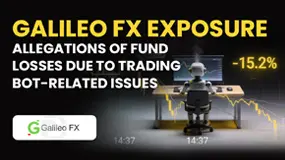Abstract:The idea of diversification is to create a portfolio that includes multiple investments in order to reduce risk.

The idea of diversification is to create a portfolio that includes multiple investments in order to reduce risk.
Did you know that 58% of Americans invest in the stock market? And out of those who do, many have their investments concentrated in only a few stocks or sectors, leaving them vulnerable to market fluctuations and potential losses.
Diversification can help mitigate the risk and volatility in your portfolio, potentially reducing the number and severity of stomach-churning ups and downs.
One way to balance risk and reward in your investment portfolio is to diversify your assets. This strategy has many different ways of combining assets, but at its root is the simple idea of spreading your portfolio across several asset classes. Diversification can help mitigate the risk and volatility in your portfolio, potentially reducing the number and severity of stomach-churning ups and downs. Remember, diversification does not ensure a profit or guarantee against loss.
One of the fundamental principles you and every other investor need to understand is the art of diversification. A diversified portfolio can reduce risks, increase returns, and protect against market volatility.
Unfortunately, a large majority of investing now takes place over the internet, making malware, phishing, and ransomware significant threats to your finances, aside from market instability. Click this page to learn how you can protect yourself from cyber threats and invest safely.
Advantages and Disadvantages of Diversification
Advantages
• Diversification gives you a sense of security even if some stocks go out of business.
• It allows you to manage risk while building your portfolio.
• Its an opportunity for growth as it exposes you to opportunities in different sectors. You get more gains, especially in a thriving sector.
• It reduces the effect of market volatility. The market is unpredictable and companies can go bankrupt. However, with diversification, you can rest assured that not all companies will liquidate.
• It helps you pay more attention to the stock market. Normally, navigating the stock market can be complicated and takes expertise. With a diversified portfolio, you start to pay attention to market trends that help you make better investment decisions.
• You dont need so much money to start. With minimal investment, a stock or bond mutual fund or exchange-traded fund (ETF) can provide considerable diversification.
Disadvantages
• If one of your investments gets profit or interest, you wont make as much if it was your sole investment.
• Due to the varieties in your portfolio, it can be hard to monitor or pay attention to individual investments especially if you dont have someone handling them for you.
• Theres a thing called over-diversification. Over diversification occurs when each additional investment made to a portfolio decreases expected returns by a wider margin than the matching decline in risk. This means, at that point, there is nothing beneficial about any new investments added.
• Diversification can get overly complicated, especially for investors that dont understand what it entails.
• Average returns are also a disadvantage. When you hold both good and bad investments, value tends to diminish and you get low to average returns.
How to diversify your portfolio
One of the best ways to achieve portfolio diversification is through mutual funds.
Mutual funds are investment entities that pool funds from investors to invest in diverse securities such as stocks, bonds, and money market instruments.
A best practice is to ensure that most of these securities are unrelated. So if one goes down or bankrupt, they wont all go down together.
Have a mix of investments in companies in different countries. Aim for international or multinational stocks. Own stocks in small and large companies, and invest in a variety of industries.
Avoid having a substantial amount of your assets in a single stock. Look for funds with low fees and spread them across many investment vehicles. An example is index funds; this is a low-fee fund that mimics a large stock like the S&P 500.
Unlike traditional investments like stocks, bonds, cash and cash equivalents, a modern diversified investment also include alternative investments such as real estate, private equities, hedge funds, managed futures, art and antiques, commodities, and derivatives contracts.
Portfolio diversification can be achieved through proper asset allocation, knowing your risk tolerance and determining what type of assets are going to be in your portfolio.










